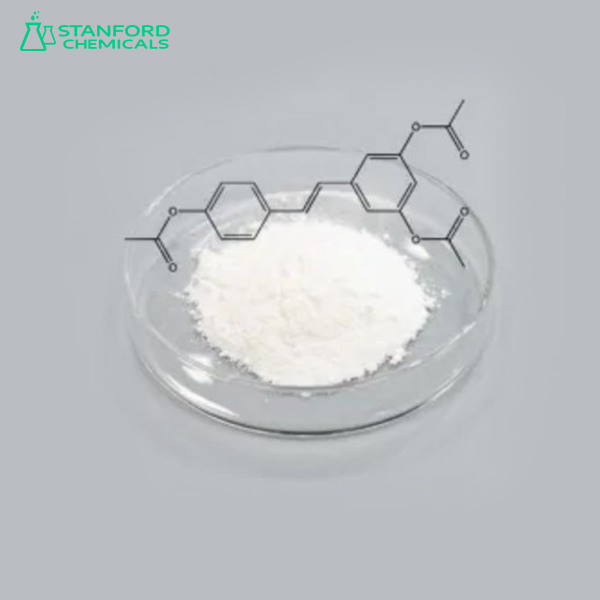
Acetyl-trans-resveratrol, is a natural active ingredient found in plants, at high levels in grapes, and in grape products such as red wine, as well as in the Chinese medicine Polygonum, and marine invertebrates. We have all heard about and know well the powerful beneficial effects of the extensively researched and clinically tested substance resveratrol. Resveratrol was first isolated in the 1940s; however, very little attention was paid to it until its benefits in coronary heart disease were studied in 1992.
The substance has turned out to be useful in treating not only cardiovascular diseases, but also pain, and tissue injury, and was found helpful in reducing the risk of neurodegenerative disorders, especially Alzheimer’s disease. Since then continuing research revealed several additional beneficial health effects. It has been reported as possessing proven anti-inflammatory and antioncogenic (for cancer treatment) effects, as well as a high antioxidant efficiency. Now it is reasonably and deservingly considered as one of the main substances responsible for the lower incidence of coronary heart diseases and some types of cancers among the regular consumers of red wines and the people living in some of the Mediterranean countries.
However, resveratrol is very unstable when exposed to oxygen, light, and heat. Since it is a water-insoluble substance, it can be easily excreted when intakes in the body, explaining the established by researchers low oral bioavailability of this precious to health biochemical. This is the main reason why finding the acetylated analog, acetyl-trans-resveratrol, was gladly assumed to propose a better option, preserving the health benefits – in trials, it demonstrated a better bioavailability and increased biological activity.
There is abundant evidence that acetyl-trans-resveratrol is a more stable and active chemical derivative of resveratrol. The former is soluble in water, has a faster absorption rate, and a greater cellular uptake level in the body. After ingestion and absorption, acetyl-trans-resveratrol is easily transformed to resveratrol under the action of the natural metabolic processes. Furthermore, a wide range of studies has shown that the acetylated analog of resveratrol may even have higher than resveratrol inhibitory (suppressing the development) effects on various tumor cells.
Acetyl-trans-resveratrol reduces inflammation, prevents the oxidation of the ‘bad’ cholesterol, and stops platelets (blood cell type) from sticking together and forming the clots that can lead to a heart attack. It is claimed to limit the spread of cancer cells and to facilitate the process of cancer cell death.
Some neuroprotective characteristics of acetyl-trans-resveratrol have been investigated to clinically confirm its protective efficiency on nerve cells from damage and the buildup of plaque that can lead to Alzheimer’s disease. There are encouraging results, but the research in some medical centers is still ongoing, and the official conclusion is still to be drawn and disseminated. Acetyl-trans-resveratrol is claimed to prevent so-called insulin resistance. This is a condition in which the body becomes less sensitive to the effects of the blood sugar-lowering hormone, which a dangerous to the body status, and is considered a risk factor leading to diabetes.
